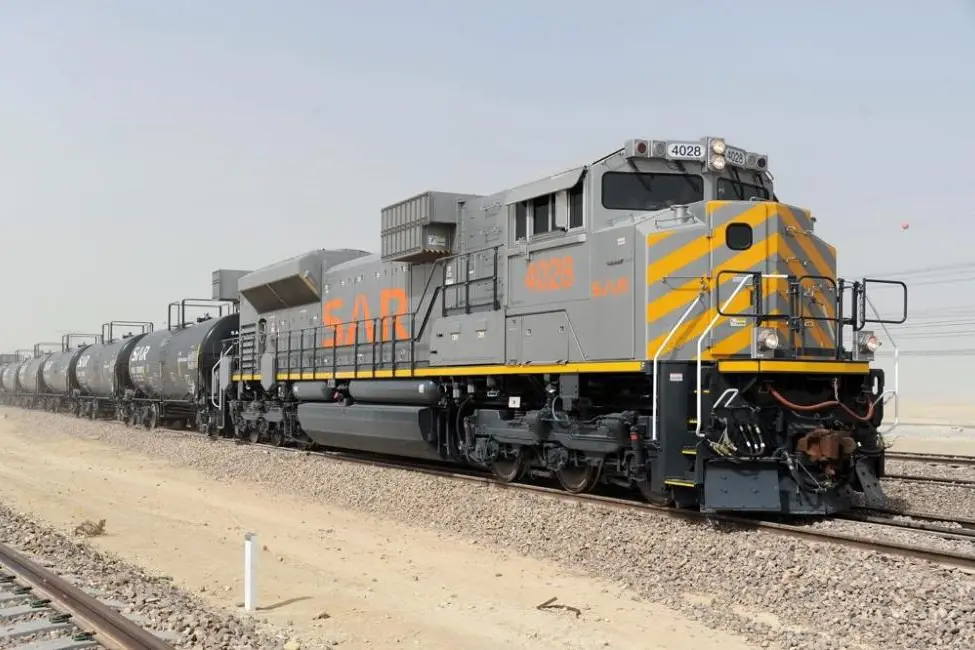PHOTO
The 1,000 kilometre Land Bridge project linking Saudi Arabia's two biggest cities is likely to be the first of four major rail projects the kingdom is set to bring to market via public-private partnerships, a senior official has said.
Speaking to Zawya on the sidelines of the Middle East Rail conference and exhibition in Dubai on Monday, Khalid AlSultan, the acting vice-president of infrastructure at Saudi Railways Company (SAR), said that details for the project would be available "sooner than you think".
When asked about when tenders might be issued, AlSultan said: "I don't have a specific date, but out of the four (PPP schemes) it's probably the most advanced, along with the Riyadh-Riyadh link because we've already had the finalised design for it."
Earlier, during a presentation at the conference, AlSultan had outlined details for the four schemes which will likely seek private sector involvement.
The Saudi Landbridge project is the biggest of these - a link from Jeddah to Riyadh that will connect with the existing Riyadh-Dammam link to provide a 1,000km-plus cross country network that will form an important part of the Gulf Cooperation Council network.
Designs for the route were completed last year by Italian engineering consultancy Italferr, which had been appointed to develop the route two years earlier. The double-track line will be able to accommodate both freight and passenger trains.
The Riyadh-Riyadh link is a project that involves connecting two existing railways operated by different companies - the Dammam-Riyadh line operated by Saudi Railways Organization and the North-South Railway run by SAR. It is a double-track line, and the project involves building an inland dry dock.
The other two potential PPP projects include an upgrade of the Dammam-Riyadh line, and a new line between Jeddah and Yanbu, AlSultan explained.
"The current Riyadh-Dammam line is serving both freight and passengers, which limits the opportunity to increase the speed for the line,” AlSultan said during the presentation.
“Given the huge volume on that line, we're looking to develop a new, electrified line between Riyadh and Dammam with a speed of around 300 kilometres per hour,” he added.
The Yanbu-Jeddah line will also be a double-track, 340km line connecting the two cities and the King Abdullah Port by King Abdullah Economic City (KAEC).
Alongside the four new-build schemes, AlSultan also said that there were opportunities for private sector players in operations and maintenance of existing assets. This is likely to be divided into two packages - one covering maintenance of rolling stock, and the other track and signalling.
"We've tested the market and we received an interesting market review on those," Al Sultan said. "We're currently developing bids that hopefully will be floated into the market soon."
Meanwhile, Oman Rail's director of rail development, Philip Marquis, said that it had revised designs for its rail project to take into account the initial 500km stretch it is likely to develop - a line from Dhofar in the southwest of the country to Duqm port - will primarily be used to transport bulk minerals.
He said that Oman remained "very committed" to the GCC project, but as it waits for this to move forward it is looking for private sector partners to bring forward this internal, bulk mineral line.
"As we go along with this, we're looking at various opportunities to include private sector off-takers - both potential miners and financial institutions to bring in investment," said Marquis.
Further reading:
- UAE says will have rail link with Saudi Arabia by the end of 2021
- No clear cut date for GCC rail projects arrival, says official
- Middle East Rail 2018 opens up new opportunities for the railway industry
- Egypt plans to award Red Sea to Mediterranean rail tender in H2 2018
- Indian Railways to showcase $140 billion worth of rail projects at Middle East Rail 2018
- New budget in Kuwait prioritises infrastructure spending
(Reporting by Michael Fahy; Editing by Shane McGinley)
(michael.fahy@thomsonreuters.com)
Our Standards: The Thomson Reuters Trust Principles
Disclaimer: This article is provided for informational purposes only. The content does not provide tax, legal or investment advice or opinion regarding the suitability, value or profitability of any particular security, portfolio or investment strategy. Read our full disclaimer policy here.
© ZAWYA 2018





















